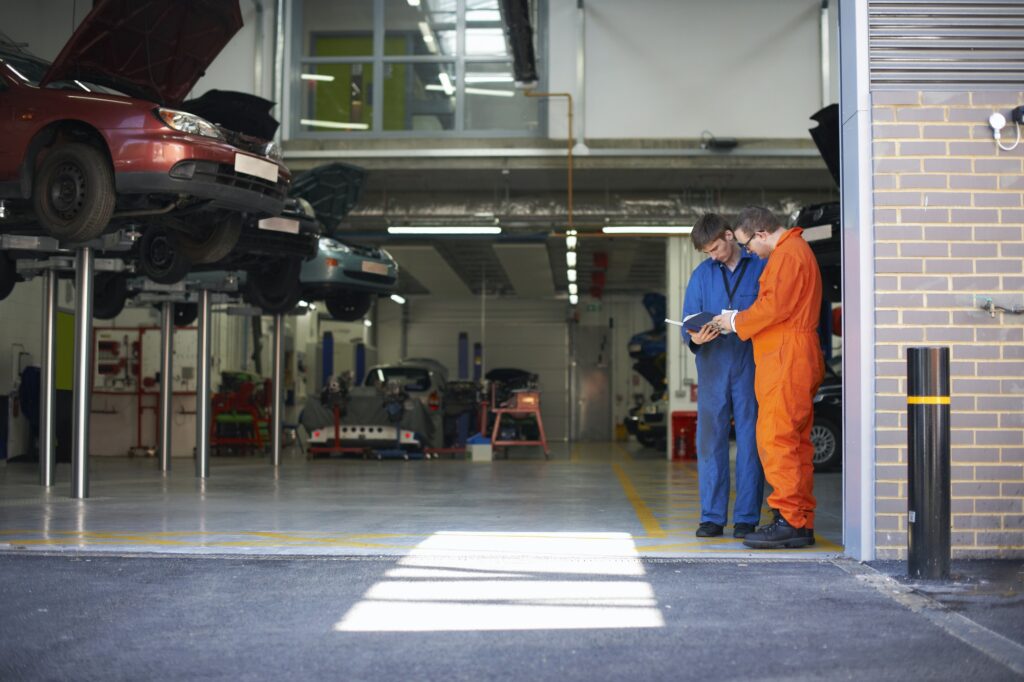A stricter contrôle technique in January 2019
The contrôle technique (CT) that all cars in France are subject to becomes stricter from January 2019. This is in pursuit of reducing pollution and fine particulate emissions. All vehicles less than or equal to 3.5 tonnes in weight will be subject to these stricter emission measures, diesel vehicles being pinched more than petrol engine ones. One source estimates that between 10% and 15% of all diesel vehicles currently in circulation will be required to return for une contre visite (to demonstrate that the necessary work has been done), compared to less than 1% of diesel vehicles in 2017.
Test control centres have specialist equipment (opacimetres) for objectively measuring exhaust pollution and their analysis of your vehicle’s conformity or otherwise is what will count. In addition, if your vehicle has its own on-board warning system (in the form of a light on the dashboard), then the technician must note if that is activate during the test.
This increased strictness for diesel vehicles in January 2019 is expected to be followed by stricter tests for petrol vehicles in 2022.
The contrôle technique basics – a reminder
The first CT needs to be done in the 6 months before a new car’s fourth anniversary. After that, a CT must be done every two years. No reminders are automatically sent, other than from a test centre wanting to keep loyal customers, so you’ll need to keep on top of this yourself. If in doubt, check the disk on your windscreen.
Vans, utility vehicles and the like (which are more than 4 years old) (including, for example, Land Rovers) are also required to take an intermediate pollution test. These are done between the technical CTs, from the 11th month of each CT.
Passing a CT does not exonerate you from keeping your vehicle in good mechanical condition. It is merely a test of a minimum legal standard.
When you come to sell a car (older than 4 years old), your car will need a CT taken no more than 6 months before the sale. If the vehicle requires a re-test, then the sale has to take place no later than 2 months after that second test.
Contrôle technique outcomes – a summary
In late May of this year the CT process was beefed up so that a total of 606 details can be checked for each vehicle. Each of these details is now classed into one of three categories of failure or défaillance (where previously there were just the two classes): mineure, majeure and critique . The implications of these failure types can be shown as follows:
| Class of failure | Result | Validity and action to take |
| No défaillance majeure or défaillance critique – one or more of 139 minor faults which have no environmental or security-related impact may be noted | Favorable (A) – ‘pass’ | 2 years’ validity for the technical contrôle and 1 year’s validity for the pollution complémentaire contrôle. No follow-up contre-visite required, no mandatory work required |
| At least one défaillance majeure – one or more of 340 major faults with an environmental or security-related impact or which may endangers others on the road | Défavorable (S) | You have two months to correct the problem(s) in which time you must have the vehicle re-tested. You can drive the vehicle during this time. Your carte gris will be marked with an “S” stamp. Delaying longer than the two-month allowed period will mean that you will have to re-take the whole test – and pay the accompanying additional charge. |
| At least one défaillance critique – one or more of 127 critical failures with an immediate environmental or security-related impact to anyone | Défavorable (R) | You will be allowed to use the vehicle for the rest of that day, but no longer, although you are allowed 24 hours from the time of the test to drive the car to your chosen mechanic. A sticker showing the letter “R” will be affixed to your windscreen. You have two-months to rectify the problem(s) and can only drive to and from the mechanic and from and to the contrôle centre. |
Penalties for not having a valid contrôle technique
Fines of 750€ can be imposed for not having a valid CT. Roadside checks that reveal this can result in your vehicle’s carte gris being confiscated. You would then have 7 days to have the repair work done so that you could report back to the gendarmerie with the required paperwork in order to reclaim your carte gris. As ever, it is easier to keep something from being broken than it is to mend it!
One can also be fined 135 € (and the loss of your car’s carte gris for failing to book an appointment to rectify a problem, and for carrying on driving instead .
The information provided here is for general guidance. The exact details of your policy will define your legal and contractual obligations. What is written there will take precedence over what is written here.
Ces informations sont données à titre indicatif. Pour connaître précisément vos obligations légales ou contractuelles en relation avec votre contrat d’assurance, veuillez vous référer aux conditions générales et particulières de votre contrat.

